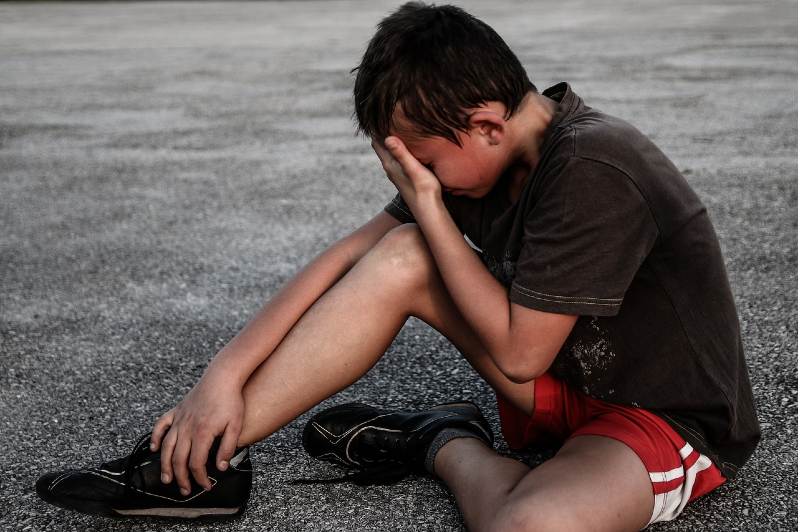
Trending on social media for quite a while and one of the top-streamed show in the history of Netflix, it’s likely your teen has seen or at least mentioned discussions of the show “
13 Reasons Why.” The show portrays an adolescent female’s experience of bullying, harassment, lack of social support, and hopelessness that ends in her decision to take her own life. Although the show has received both praise and criticism, there is no denying it has brought the topic of teen suicide sharply into public focus and left many parents wondering, “Should my teen be watching this?”
Understandably, for many parents, the word “suicide” is fraught with anxiety and fear, which can often lead to avoidance of this topic with their teen. However, having open communication is paramount, as suicide is the third-leading cause of death among adolescents ages 15-24. Further, data from a large national survey (YRBS) completed by the Centers for Disease Control and Prevention (CDC), revealed that within the last 12 months, of the adolescents surveyed in grades 9-12:
17.7 percent reported seriously considering attempting suicide- 14.6 percent noted making a plan of how they could end their life
- 8.6 percent attempted suicide
- 2.8 percent attempted suicide that resulted in an injury requiring treatment
While these numbers are alarmingly staggering, they highlight just how common thoughts of suicide are and further stress the importance of understanding how to support teens. Some ways to reduce risk include allowing for open conversations regarding these thoughts and increasing teens’ access to treatment.
Trying to answer the question, “Should my teen be watching this?” is complicated and depends on a few factors. There is evidence in the research to suggest that presentations of suicide on TV or in the media can result in cases of “copycat suicides.” It is important to remember these messages can have a powerful impact on the viewer. However, this doesn’t necessarily mean you need to censor your child from viewing shows that may cover this topic. Regardless of your choice to watch this show or shows like it, perhaps what is most important is the personal conversation you have about the topic. Parents and teens would benefit from having open discussions about suicide — and if your child has viewed emotionally triggering content, a conversation will help them make sense of the material and help your child know they have support.
Some conversation starters could be:
- What are your thoughts about that show?
- Has there ever been a time you felt like that?
- Has a friend ever told you they had thoughts like this?
- Have you ever felt so bad you wanted to disappear?
- What keeps you going when things get really hard?
- You can always talk to me. And if that is too difficult, is there someone you could talk to if you are having a hard time?
Having said this, there are situations where it might be best to screen content for your teen. One reason you might censor content is if your child is at risk (i.e. feeling depressed, talking or joking about suicide, getting bullied, expressing thoughts of worthlessness, etc.) If your child is at risk, it might be the best idea to reduce exposure to triggering content, at least until risk is reduced and professional support is in place.
No matter what you and your family decide about viewing shows that cover topics such as suicide, talking together will open lines of communication and can even reduce risk. Having these conversations, in person and with supportive, caring adults, is very important. There is significant stigma and fear surrounding sharing thoughts of suicide, but research indicates a lessening of the burden and increase in one’s mental health following the open discussion of difficult, personal topics. These conversations can help a teen feel understood and build a foundation for healing, communication, and learning how to cope with issues and problems in a healthy way.
As hard or awkward as it may be, don’t be afraid to start this conversation with your teen as an adult who deeply cares for them. Your teen may be experiencing depression, anxiety, fear, suicidal thoughts, and pain — even if, on the “outside,” your teen seems fine. Sometimes suicidal thoughts can feel too painful or embarrassing to share. Their pain might be hidden by a smile that serves to ease the concern of caregivers and friends and cover the pain, as teens can be acutely aware that parents or friends will worry they are over-burdening loved ones and therefore might stay quiet about these feelings. This can create a feeling of further isolation, silence, and increased risk. Teens may have good friends, leadership positions, and supportive family members yet still be thinking about suicide or feeling hopeless, even worthless. A tough exterior with the intent to protect loved ones can disguise the true conflict within — but a listening ear from a caring adult may be enough to open a doorway to meaningful and helpful conversations, ease the pain, and potentially save the life of a cherished child.
Warning signs someone may be thinking about suicide need to be taken seriously. Signs can include:
- Substance abuse
- Sadness and hopelessness
- Expressed suicidal thoughts or actions
- Previous suicide attempts
- Direct statements, such as: “I’ve decided to kill myself,” or “I’m going to end it all.”
- Indirect statements, such as: “I’m tired of life” or “Everyone would just be better off without me,” or “Who cares if I’m dead anyways?”
Even if the teen sounds sarcastic or joking – it is important to take these statements seriously and check in with your teen.
- Ask directly if he or she is considering suicide
- Be willing to listen with care and concern
- Offer hope that alternatives are available
- Take action to ensure his or her safety
This might mean getting help from persons or agencies specializing in crisis intervention and suicide prevention.
By Phone
(239) 343-9180 for adults
(239) 343-9190 for pediatrics
By Phone
(310) 855-HOPE or toll-free in the US and Canada at (800) TLC-TEEN
Open from 6PM to 10PM PST every night
Your call will be directed to Didi Hirsch’s Suicide Prevention Center after hours
By Text Message
Text “TEEN” to 839863
Peer counselors are available from 6:00PM ti 9:00PM PST
Text “STOP” to opt out
Standard message and data rates may apply
For terms and conditions please visit http://www.preventionpaystext.com/policies/
By Phone
Toll-free at (800) 273-8255
For hearing impaired, contact Lifeline: 1-800-799-4889
- The Society For The Prevention of Teen Suicide
- Youth Suicide Prevention Program
- It Gets Better
- Suicide Prevention Resources for Teens
PLEASE NOTE: If your child is expressing a suicidal plan you should go to your local ER or call 911.
Please consider creating an open space with your teen to have the conversation – even if it is hard. Sharing an ear, shoulder, hug, smile or simple moment of connection today may be the beginning of the support your teen needs. Even if your teen is not thinking about suicide, a friend of theirs may be, or they may just be worried about the topic in general. Knowing the pathways to get help opens the door to healing — and mental health is every bit as important as physical health. Talking about tough topics and offering support opens the lines of communication, reduces risk, and can lead to getting the professional help your child may need.
And if you ever have any questions about who to contact regarding your teen’s mental health, please don’t hesitate to reach out to your Cape Coral pediatrics office here at MacKoul Pediatrics.
MacKoul Pediatrics is an amazing local pediatrics office in Cape Coral, FL where caring, compassionate doctors and nurses work with you to keep your children as healthy as possible. MacKoul cares for children from birth to college age, from Cape Coral, Fort Myers, Naples, and beyond.
November 29, 2017
![[IMAGE]](images/858_ncqa_logo_centered.png)
 Trending on social media for quite a while and one of the top-streamed show in the history of Netflix, it’s likely your teen has seen or at least mentioned discussions of the show “
Trending on social media for quite a while and one of the top-streamed show in the history of Netflix, it’s likely your teen has seen or at least mentioned discussions of the show “